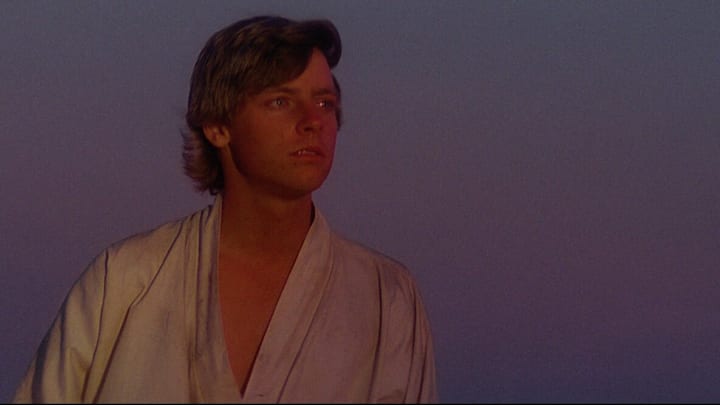When Star Wars first hit theaters in 1977, it already felt like a fully formed universe. It had a classic hero’s journey, a chilling villain in all black, and then, in 1980, a dramatic twist involving a galaxy-shaking family secret.
Here’s the thing you might not know, though. It almost didn’t play out that way.
Before George Lucas figured out who was related to whom—or, frankly, what the heck he was going to do if this scrappy space movie actually got sequels—Luke and Darth Vader weren’t even father and son. In fact, in early drafts of The Empire Strikes Back, Luke and Vader were the same person.
Yes, you read that right.
The early draft that changed everything
According to Lucasfilm historian J.W. Rinzler and the now-famous “Story Conference Notes” from 1978, Lucas initially toyed with a radically different sequel structure. In one version, Darth Vader was just a terrifying villain, not Luke’s dad. Meanwhile, Luke’s father, known as “Annikin Starkiller” or just “The Father,” was a separate character who had died at the hands of Vader.
By the time Lawrence Kasdan came on board to co-write Empire, however, Lucas had developed a concept that ended up completely reshaping the franchise. What if Vader was Luke’s father? He would no longer be a random villain, and Luke’s dad wouldn’t be a different Jedi. Suddenly, Luke’s destiny became darker, and Vader’s redemption arc began to take shape in earnest.
As Lucas later said in Empire of Dreams, “Vader saying he’s Luke’s father was a new idea I had during the second draft. It just came to me.”
This twist retroactively changed everything about A New Hope, and forced Lucas to come up with a full backstory, including the eventual prequel trilogy. But, long before “No, I am your father” became the most famous line in sci-fi history, there was a very different plan.
Darth Vader kills Luke and becomes him
Here’s where things even wilder.
In some of the more outlandish ideas pitched before the final script came together, Lucas reportedly considered a version in which Luke would be killed, then replaced by a clone or by Darth Vader himself in a new body.
According to Laurent Bouzereau’s Star Wars: The Annotated Screenplays, this particular concept can be traced to an early development stage when Lucas still viewed the saga as more of a philosophical epic than a serialized adventure.
As sci-fi journalist Edward Gross noted in Secrets of the Force, Lucas's flirting with the idea of merging Luke and Vader through some metaphysical or mystical means was just one of many notions that were thrown around throughout the development of the original trilogy. He wrote, “A writer is thinking about what he’s supposed to be doing, whether he’s actually doing it or not, every waking hour. He’s constantly pondering problems.”
While the idea of Luke literally becoming Vader never progressed past the napkin-sketch stage, identity, duality, and destiny have always remained at the heart of the saga.
What does this say about the Force?
When Lucas eventually cemented Darth Vader as the young Skywalker’s father, it reframed the Force as a deeply personal inheritance. Suddenly, it was no longer just an energy field binding all things; it became a matter of bloodlines and midichlorians, legacy and moral choice. Luke’s struggle wasn’t just with Palpatine’s Empire, it was with himself. Could he resist becoming the very thing he was fighting?
In many ways, the early drafts of Luke/Vader as one character wrestled with that same concept, albeit more literally. It’s also easy to forget that Star Wars has been built in layers over the decades, often retconned and reimagined as the galaxy continues to expand. There was no grand plan from day one.
George Lucas once famously told Rolling Stone in 1980, “There’s no way you could have guessed what was going to happen.” That includes him.
We now accept the Vader twist as gospel, but it was born from a shifting, experimental process. Had Lucas stuck with the original concept, we might never have seen Luke throw down his lightsaber, Vader redeem himself, or Anakin’s full tragic fall.
In short, Star Wars nearly skipped the family drama altogether, and thank the maker it didn’t.
More from Dork Side of the Force:
